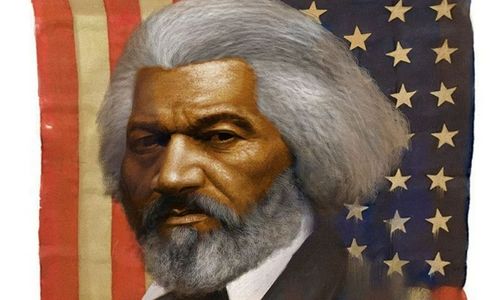Jacksonville, AL – On Friday, March 1st from 5:30pm to 7:00 pm the Tocqueville Lecture Series and JSU present Tocqueville Lecture Series Talk: Seizing Citizenship: Frederick Douglass’s Abolitionist Republicanism. To register for this event, visit http://bit.ly/TLSYaure. The Tocqueville Lecture Series is excited to host Dr. Philip Yaure (Virginia Tech). His presentation, “Frederick Douglass’s Abolitionist Republicanism” examines three ideas of what makes someone a citizen. He argues that Frederick Douglass understands citizenship in a republican tradition that includes the resistance against slavery in the American context. The virtual event is hosted through a Zoom Webinar. You will receive a hyperlink upon registering at http://bit.ly/TLSYaure.
Abstract: What does it mean to be a citizen? Sometimes, we think of citizenship as a legal status that is conferred upon people by a state. Sometimes, we think of citizenship as an identity— to be a citizen is to possess a particular nationality. In this talk, I examine a third way of thinking about citizenship, which we find in the republican tradition of political philosophy. On this republican way of thinking about citizenship, citizens are people who contribute to a polity by participating in its political life. I argue that, in the decade leading up to the Civil War, Black American abolitionist Frederick Douglass uses this republican idea of citizenship as contribution to articulate a radically inclusive ideal of political community. Enslaved and nominally free Black Americans, Douglass argues in the 1850s, are already American citizens, whom the polity ought to respect as such, because they contribute to the nation through resistance against slavery. Douglass’s theoretical innovation is to redefine the idea of contribution: persons contribute to a polity as citizens by acting in ways that contest and shape what the polity values. Resistance against slavery and white supremacy, in both grand and quotidian forms, manifests the fact that those who resist matter as members of the community. These normative claims embodied by antislavery resistance amount to civic contributions that constitute those who resist as citizens. It is in this sense that Douglass’s republican idea of citizenship is abolitionist: an inclusive polity is realized through resistance against oppressive institutions and ideologies, because resistance itself expands the boundaries of an exclusionary polity.
Bio: Philip Yaure is Assistant Professor of Philosophy at Virginia Tech, where he specializes in social and political philosophy and the history of African American political thought. His work has appeared in Ethics, American Political Thought, Philosophical Studies, New Political Science, and the Civil War Book Review. Phil is particularly interested in questions concerning the nature of political community and citizenship, and he explores the ways in which Black American political thinkers theorize these concepts in the antebellum period. This talk draws on material from his first book project, which argues that Frederick Douglass makes a distinctive intervention in the history of republican political thought by fundamentally reimagining the nature of American citizenship.








